- Home
- Anson Cameron
Silences Long Gone Page 9
Silences Long Gone Read online
Page 9
So he tells them there’s real scientific data proving a number of emotions can lead to the state of sexual excitation … fear being among them. Then he laughs and tells them he never expected shark-scare could make for such a highly rampant old fella or he and the girls of his teens would have been watching Jaws One, Two and Three instead of all those Long John Holmes videos from under his father’s sofa.
The other surfers just shake their heads and stay angry and ask what the fuck was really going on. Thaw tells them, ‘The erection. The Speedos. The embarrassment.’ They look at each other and at Thaw. They don’t laugh. They bite deep into lentil-burgers and suck their faces concave on peach smoothies. They stay angry and wondering and swear they’ve surfed with him for the last time.
And because he lives with me people ask me, What’s going on with Thaw? Bleeding out there like that. And the cops hovering. What?
Soon they come to know the cops are always hovering when there’s a chance at some of Thaw’s blood, or a hank of his hair or some of his spit or jism.
The cops have, Thaw says, tried to get spit from him by enraging him in argument. Have tried to get blood from him by enticing him into brawls. Have tried to get jism from him using undercover female officers in late-night bars and no underwear whatsoever.
What they want, says Thaw, is my D and my N and my A. And they’re damned frustrated at not being able to take it. At having to wait ’til it falls from my person of its own accord. At having a Godfucking Labor government master that won’t let them take people’s DNA by force.
DNA will tell the world, the police say, whether Thaw is a bad, bad man … or that other variety … a plain unknown quantity.
Part 3
7
Felling Trees
He screams the saw high before leaning the chain into the soft outer bark of the Schinus molle where the scream flattens with falling revs as the blade disappears and the teeth rip deeper into older growth rings. As it loses revs he eases his weight off and pumps the trigger until it builds again to scream. A wet stream of wood chips fires out behind him onto the ground. The smell of peppercorn is strong in the air.
He snags the traction teeth on the outer bark and uses them to lever the bar tip to its full metre depth. In there, fifty years deep, the chain is slowed on the hard grain, grinding to a halt and stalling the motor. In the silence he swears Jesus peppercorns are bastards to cut and can blunt a chain fast as dirt can. They’re fucking weeds, these things. The others are just struggling along. But these things are fucking weeds. From Peru they are. Bastards. He lifts his visor up onto his helmet and puts a boot up on the trunk of the tree and tries to pull out his saw. He works it back and forward and swears against everything Peruvian until it’s out.
Then he walks around the other side of the tree and drops his visor and restarts the saw and slants a cut down into the one he’s already made. I see the quiver begin in the tree’s fine foliage. The leaves feathering as if in breeze. There’s a groan above the saw noise and he pulls the blade out of the trunk and hits the kill button and takes a step back as it gurgles silent. He watches the tree. Waiting to take a step either way.
Its fall begins in groan and accelerates toward me in an arc that ends in a rampage of branch-fracture with a spray of fish-bone leaves and red peppercorns thrown high and raining wide in the silence.
He starts the saw again and cuts a notch in the stump for the dozer driver to loop his chain through. Then he walks up the street to a Tipu tree with a trunk no thicker than a man and he takes it at red-line revs in one cut so its trunk spears into the ground off its stump and topples over from there. He doesn’t notch the stump this time. It’s puny enough for the dozer to power right over without even gear change. He looks up at me and shouts, ‘Tipuana tipu. Brazil. Nice tree in its place.’ The saw stalls. ‘Lovely filtered shade,’ he says.
Looking back I see the peppercorn stump attached to a D10 dozer by a haulpak tow-chain. The driver eases the huge machine forward, taking up the slack, lifting the chain’s donut-size links into a quivering then still line between machine and stump. He guns a couple of shots of blue exhaust into the sky and puts horsepower down through the steel tracks into the rock. The stump begins to tilt and the earth on its far side to lift and crack. Roots can be heard popping and snapping underground. They begin to appear above ground, springing up into the air as they snap, throwing rocks and dirt. Then there’s a loud subterranean pop of tap-root and the stump heels over and is dragged out of the earth with what’s left of its root system a high wide suck at fresh air.
The saw is off. We walk up to a tree and he slaps its trunk and says ‘Native’, and keeps walking. He stops at another. ‘Acacia baileyana. Cootamundra Wattle. Native. But native to the eastern states.’ He pulls at the starter cord of the saw, dropping its weight against the pull while I back off out of the tree’s reach. His face is relaxed in small smile. No wince at the scream of saw. He’s doing good. A man working to his own Hippocratic oath.
He’s one of five arborealists working their way through Hannah. Each has a small grid of streets. They’re cleansing the landscape of any tree not native to the area. Chopping down anything planted by the mining generations and anything that seeded from anything planted by the mining generations. Introduced species they learnt to recognise from their studies at the fiercely nationalist herbariums of the Whitlam era.
The sound of tree fall and the pop of root runs off into the desert mirage. Tomorrow the black smoke of the diesel they use as accelerant for the bonfires will rise in a map of self-generated thermals.
I leave him cutting and walk back across the red of the land to my mother’s house. Her house is the only building left of the town now. The only building with its roots down into the rock, anyway. There are a handful of semi-buildings around her house up on chocks ready to be lowered and towed away on their own wheels as soon as she gives in.
She’s her own hostage situation now. If she was to dig a trench and take up arms she’d get the Special Operations Group storming all over her in black overalls and hate. But she’s holed up in her own house with her faulty heart threatening to do her in if they come any closer. Her own hostage. With the company held at bay. Not knowing what to do. Sitting at distance with its public relations people bombarding her with happy resolutions out of a megaphone. Waiting for her fatigue to show. For her loneliness to tell. For her resolve to break.
Out front of her house a blond man is leaning out the window of a site-van into the heat. He has the megaphone pointed at her house, reading cheerful, fifteen-decibel postcards from friends who up until a short time ago lived here alongside her. He stops when he sees me and watches me while he works his jaw side-to-side and takes a drink of water because his throat is dry with correspondence. Then he aims his megaphone at her front door and pulls the trigger and fires a few more messages of love and reminiscence and new horizons at her.
‘Val and Ron Keszig are living in Albany now.’ His voice rattles her windows and bounces back at him. ‘In a ten square brick-veneer with their own en suite bathroom. They miss you very much. Listen.’ He begins to read through the megaphone. ‘“Dearest Belle, Just thought we’d drop you a line to let you know how much we’re missing you and to let you know how much we’re enjoying life on the coast. Ron’s been out early and caught us some lovely size whiting for lunch and our new friends, the Watsons, are coming over.”’ The blond man on the megaphone is actually putting on an old woman’s voice, enlivening the whole communication by amateur drama. ‘“They have a boat and are taking us out whale spotting on Tuesday. Whales … imagine. Of course Ron’s mum Vicki is here, as you know, only about two hundred yards away down the road with a lovely English lavender hedge surrounding her and her old headstone sandblasted clean and an ocean view. Imagine trying to get English lavender growing in Hannah. Ha, ha, ha.”’ The blond man on the megaphone laughs so real here you can’t tell if Val Keszig wrote the laugh in her correspondence or he found the thoug
ht of someone trying to grow English lavender in Hannah funny all by himself. ‘“Anyway dear, just dropping a line to say we’re missing you (but not all that red dust and temperature) and that life is good here by the sea. Wendy is visiting from Esperance this weekend where she’s doing a ceramic sculpture course and says hello. We still play a lot of Bridge. No one here plays like you and me did, though. When I’m partnering Karen Watson I often play like I was still partnering you and it costs us dear because she’s timid where you weren’t. Ron says I’m starting to ramble now, so I’d better go. We remember you beautiful. I wish you’d join us. Ron does, too. Much love, Val. PS: I’m sending this care of the company because you’re no longer in an area covered by Australia Post.”’
The blond man on the megaphone begins rebroadcasting this postcard at her house as soon as he finishes it, putting new inflections and emphases on it because he’s bored with the way he’s read it the five times before this. This time he doesn’t laugh at the English lavender. His voice echoes off her house and away into the heat mirage.
I walk in my mother’s front door, through the gallery of purple paintings down her hall and into her kitchen. She isn’t listening to what the blond man is telling her of the Keszigs’ new life through his megaphone. She’s sitting up close staring into the last of the bakelite radios, listening to a programme of dream interpretation where people ring in and get told what their dreams mean by some woman dream expert. It’s coming out of Sydney on short-wave and whenever one of the callers mentions where they’re from my mother repeats the place-name in an awed voice.
‘Hello, William,’ says the dream interpreter. ‘Where you calling from, William?’
‘Kogarah,’ says William.
‘Ko … ga … rah,’ repeats my mother into the radio like she’s Peter Finch saying ‘Shangri-La’.
‘Okay William, let’s hear your dream.’
‘Well – it’s sort of weird,’ says William. ‘This woman I sort of know but sort of don’t shoots me in the face and also in the bottom.’
‘Ouch,’ says the dream interpreter.
‘Yeah. Ouch,’ agrees William. ‘Anyway I’m dying and there’s blood everywhere all over my Armani suit and I crawl to a cafe and have a cappuccino and then I crawl to the theatre and see a really good play during which I get this incredible erection and the audience is really impressed and starts applauding it instead of clapping the play and the actors. They call, “Author. Author.” And Oscar Wilde comes out and pats my erection on its head like it’s a puppy or something. Then wild dogs come into the theatre and attack me. That’s it …’
‘Well, isn’t this exciting,’ the dream interpreter says. ‘Exciting about what it tells you about yourself. See, you had some female relative in your early life that tried to hold you back from the brave, creative things you wanted to do. Hence the shooting. But despite this terrible handicap you got on and had a good time and were successful in an outrageous and talented way. Well done. You’ve been very brave. You’ve pushed through and won, hence the hearty congratulations from the famous playwright.’
‘What about the dogs?’ asks William.
‘The dogs? The dogs don’t count, they’re the beginning of your next dream,’ she says.
Then she’s off on another call. ‘Hello, Rosie. Where you calling from, Rosie?’
‘Punchbowl,’ says Rosie.
‘Punchbowl,’ whispers my mother as if she can see herself lying on the white sands of a Punchbowl beach surrounded by movie stars bent over her with their brows knit like surgeons, working on her orgasm. I’m wondering what frame of Robinson Crusoe mind you’ve got yourself into if you can say ‘Punchbowl’ like it’s exotic.
‘Let’s hear your dream, Rosie.’
‘Well, it’s a full moon and I’m going for a swim in the sea and I start turning into a dolphin. Whatever part gets wet becomes dolphin. When I’m under water I’m fully dolphin. Then there are thousands of dolphins everywhere and I lead them all to this safe place underwater where no people can hurt them and anyone who wants to hurt them has to get into the water to do it and becomes a dolphin by getting into the water.’
‘And so become the thing they would destroy,’ says the dream interpreter.
‘I guess so, yeah,’ says Rosie.
‘What a wonderful dream, Rosie. Well done. In fact it’s hardly a dream … it’s art. It’s creativity maxed-up to high-art level. You should be applying for an Arts Council grant with dreams like that. Are you a very creative person?’
‘My parents say I am.’
‘Pisces?’
‘Sagittarius.’
‘I thought so. Your higher self has a great creative aura. Now, where your dream is coming from is it’s about your higher self telling you to put pressure on the Japanese. Your higher self is passionate about this and you’ve got to act. If I were you I’d get over there to Japan and protest somehow. Run amok on the subway. Go apeshit in a ramen shop. Those bastards are eating whale in there.’
‘Why are all your paintings purple?’ I ask. My mother jumps back from the radio and slaps her left hand up across her heart and sucks a breath.
‘You can still knock, you know. On your second visit in eight years you can still knock when you walk in.’
‘Sorry,’ I say. She sits back down.
‘It’s all right. I was miles away,’ she says.
‘I wanted to know why all the paintings you do are purple.’
She turns her radio down and goes over to the sink and fills her Kambrook Express Boil kettle. With the radio low we can hear the stories of her friends’ happy migrations megaphoned in from outside. Ren and Isa Brownlow are travelling through Scotland in a bus filled with adventurous pensioners, they call them. They wish she was there. Everyone wishes she was everywhere but here.
‘No reason apart from it was cheap,’ says my mother.
‘Purple was cheap?’
‘It’s not purple. It’s Meadow Phlox. Which is some marketing person’s idea of a name for the colour that Paterson’s Curse is. Meadow Phlox. The Hannah Landscape Artists Group bought a job-lot of Meadow Phlox a few years back when Paterson’s Curse was edging up north out of Kalgoorlie and the whole country round here was expected to turn purple under it. But even Paterson’s Curse couldn’t cross the Great Victoria Desert, so the country never turned purple. It stayed red. And all the landscape painters never missed a beat. Kept on splashing away Burnt Ochre. And the Hannah Landscape Artists Group were stuck with 288 tubes of Meadow Phlox with the nearest Paterson’s Curse stopped a thousand mile off. So I bought it – it was cheap. Nothing almighty or significant. Just cheap.’
‘Can I have a few paintings to take with me? Jean’s interested in art. Has a gallery.’
‘It’s not art. It’s just me remembering. Take as many as you want if you want them.’ She pinches up a miser’s pinch of tea out of an industrial-size tea container and dribbles it into the steaming teapot. Only enough to take it one yellow shade off hot water. ‘You having a cuppa?’
‘No thanks.’ She puts the teapot and her empty cup on the formica table top and goes to the freezer and opens it, standing in its boil of fog like a Weird Sister. ‘How many were coming today, did you say?’ she asks.
‘I’m not sure. A couple of Kunimara. A couple of company people. Your fat journalist friend. Eight all up?’
‘Eight,’ she says. ‘Eight.’ She leans deep inside the freezer and starts fossicking with both hands among the stones of frozen food there. Fossicking so hard she’s making bowling-alley sounds. She comes out with what looks like a brick wrapped in tin foil and slams the freezer lid sending a last wave of white up and rolling across the ceiling. She unwraps the silver brick and it becomes a fruitcake of some hard metamorphic type. She half fills the sink with hot water and puts the fruitcake on a baking tray and floats it in the hot water. Then she sits to drink her tea and breaks open a new carton of Marlboro.
That’s how she waits for the visitors or the deputati
on or whatever it is. By thawing fruitcake. She gives the cake half an hour on its first side before refilling the sink with hot water and turning it ninety degrees clockwise onto its next side. Another half-hour and another ninety-degree turn and so on until the long sides of the cake are done and it looks more like an actual edible fruit cake than a metamorphic one. She tries standing it on its end but it won’t balance with the baking tray riding stormy sink water, so she gives it another session on its first side.
I wait by rolling up paintings and tying them with string for travel. I take about thirty. Twenty-odd sad purple Dads and ten or so sad purple Molly’s. Then I go back to thawing fruitcake with my mother.
About mid-morning the blond man stops megaphoning successful migrations at the house. Silence breaks apeshit upon us. My mother lifts her line of sight out of the patterns in the formica of the kitchen table and looks at me and I look back at her as she tries not to hyperventilate. We look at each other for a while in the silence before there’s a knock at the door. It’s air-conditioned too cold in here but there’s a sheen of sweat on her face. She’s gnawing fast on her bottom lip.
‘Hey, they’re just here to discuss this. To give their side and listen to yours,’ I tell her. She nods and lights another Marlboro. Doesn’t know whether to gnaw her lip or drag her Marlboro. It’s the first time I’ve seen her scared. The whole legal army BBK has ranged against her hasn’t made her so much as ponder that maybe, just maybe … she’s wrong.
But now the Kunimara people are coming. With their point of view. With their Dreamtime. With their forty thousand summers of forebears buried roundabout and sat on rock ledges roundabout. With their skin made all plum-coloured from those forty thousand summers. And with, maybe, their truth.
I invite them all how-do-you-doing and helluva-daying and pleased-to-meet-youing and g’daying into the living room where she waits in an arm chair. The day incidentally, is now so hot it would make you dizzy to walk into it. And no one here is pleased to meet anyone else.

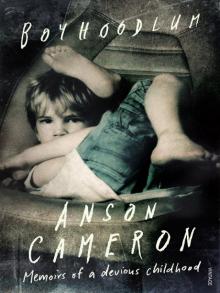 Boyhoodlum
Boyhoodlum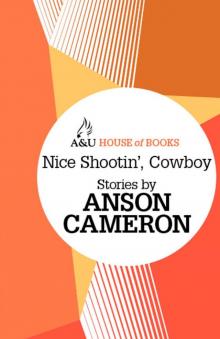 Nice Shootin' Cowboy
Nice Shootin' Cowboy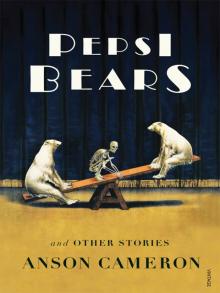 Pepsi Bears and Other Stories
Pepsi Bears and Other Stories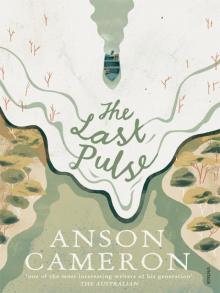 The Last Pulse
The Last Pulse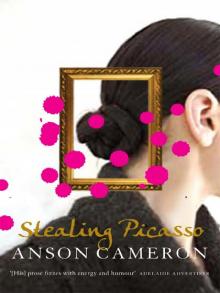 Stealing Picasso
Stealing Picasso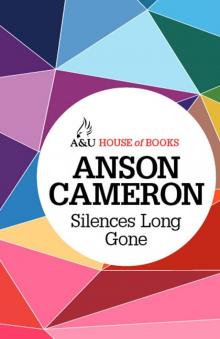 Silences Long Gone
Silences Long Gone